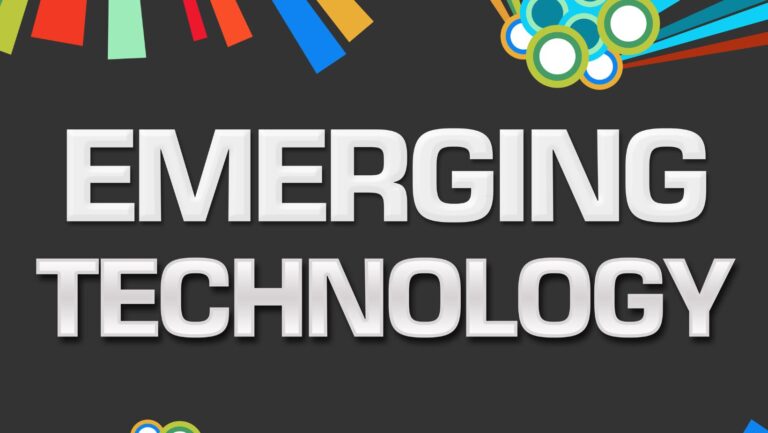Artificial intelligence, virtual reality, blockchain, and cloud computing are some of the technologies that have become mainstream in recent years. Tech and mobile companies lead adoption rates, but these technologies have spread to various industries, from finance to healthcare, entertainment, e-commerce, and education. Many businesses in the US, Canada, Europe, and the rest of the world already use AI to generate web content, automate redundant tasks, and personalize consumer experiences. Other use cases include gathering and analyzing metrics and boosting cybersecurity. Here’s an overview of how businesses are using emerging technologies to get ahead:
Using AI for Data Analytics and Automation
Modern technologies like AI and natural language processing offer the opportunity to analyze large volumes of data from multiple sources. NLP allows businesses to gather and analyze data from customers and clients speaking different languages. Machine learning algorithms use past records and patterns and real-time activity to influence decisions. AI systems can be deployed to automate various aspects of the business, from ID verifications to email marketing and customer service. AI-powered chatbots also offer instant answers to generic questions about the business, resulting in 24/7 customer service in multiple languages. Banks are using AI to facilitate data analytics, revenue forecasting, risk monitoring, and stock price predictions.
Chatbots help businesses gather data, and AI systems quickly analyze the information to identify patterns and summarize them into more presentable reports. Paralegals can use natural language processing interfaces to translate and edit legal documents and AI systems to conduct research, automate tedious tasks, and provide personal assistants. Businesses in the healthcare industry are also using AI diagnostic algorithms, predictive analysis, virtual health assistants, new drug development, and more. Reliable IT support also assists other industry players, such as those in manufacturing, where companies are increasingly using technological tools and innovations, including AI and ML algorithms, to automate production, optimize processes, and train robots for complex tasks. Realtors are also using AI to analyze real estate data, inform underwriting, and predict market demand.
Using Blockchain to Boost Cybersecurity
Blockchain is another technology that has impacted various industries, from the online gaming and entertainment sector to banking and retail. Blockchain is a distributed ledger that uses advanced cryptography to provide immutable records of transactions and events. Most legal Canadian online casinos today accept Bitcoin, Litecoin, Ethereum, and other cryptos as deposit and withdrawal options. Some even feature crypto-exclusive bonuses that players can claim to explore more slots, roulettes, blackjacks, poker, and other real money games. However, blockchain is used in many other ways by hospitals, banks, and network providers. The decentralized distributed ledger offers immutability, which increases transparency.
Records are stored with cryptographic hashes and verifiable digital signatures that are immune to conventional manipulation. Businesses can accept crypto payments to enhance privacy and anonymity since such transactions don’t require revealing sensitive data. Blockchain-powered cybersecurity solutions can also safeguard against network attacks. Some systems take 24/7 snapshots of the network and store them in blockchains with timestamps and other details. This allows cybersecurity teams to audit and identify attacks early. The systems can also be integrated with AI algorithms to flag suspicious activity and send alarms. Healthcare companies also use blockchain systems to offer secure data sharing, transparency, and easy auditing.
Using AI for Call Center Strategy
Leveraging AI in call center operations can significantly enhance customer service efficiency and personalization. AI-driven tools streamline processes like query routing, sentiment analysis, and predictive analytics, enabling quicker resolutions and improved customer satisfaction. Moreover, businesses can Implement an Omnichannel Call Center Strategy to seamlessly integrate AI across communication channels, ensuring a unified and consistent experience for customers. By adopting these technologies, organizations can stay competitive and foster stronger customer relationships.
Using VR and AR To Create Realistic Environments
Virtual reality and augmented reality are revolutionary technologies that create immersive 3D environments and experiences. VR uses simulated environments, while AR overlays the virtual worlds onto real-world objects. Some devices deploy extended reality, which combines VR (virtual reality), AR (augmented reality), MR (mixed reality), and other visualization technologies.
These technologies are being adopted by businesses in the manufacturing, automotive, healthcare, logistics, architecture, and design industries. The benefits of VR and AR range from enhanced customer experiences to safe work environments. VR also has capabilities in collaborative projects, product design, and remote marketing. Hotels, casinos, museums, and travel destinations can create VR environments to give clients more realistic and immersive experiences, improve the quality of the interaction, and build trust.
Manufacturers, doctors, engineers, and military camps can use VR headsets to facilitate training by simulating real-world work environments and situations. Companies and organizations can use VR to conduct virtual meetings, increase employee engagement, and simulate customer interactions. These technologies offer enhanced data visualization, making them ideal for visualizing real estate and architectural structures. Service providers can also use VR for remote maintenance and support. Casinos can also offer VR experiences, allowing players to explore realistic floor environments complete with gaming machines and chatters from other people. Some VR environments are almost indistinguishable from the real world because they’re modeled after real places and situations.
Key Takeaways
Technological advancements continue to shape various industries and businesses as companies compete to offer the best products and experiences for their clients. Security, transparency, efficiency, and personalization are key selling points for consumers, so most advancements are geared to enhance these aspects. AI, blockchain, and VR dominate the current scene, offering improved automation, proactive cybersecurity, and heightened customer experiences. Cloud computing, quantum computing, and mobile processors are other trending technologies. These technologies have been adopted by online businesses, hospitals, schools, auto shops, factories, supply chain companies, law firms, banks, real estate companies, and more.






